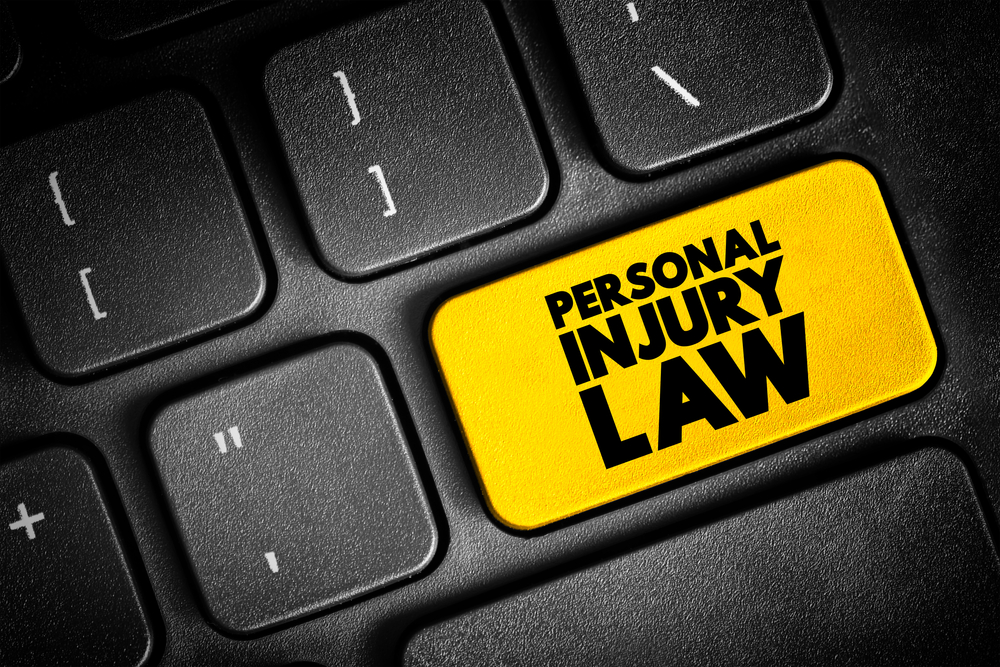 Personal injury cases can arise from a variety of situations, each with its own unique characteristics and legal considerations. Understanding the different types of cases that fall under the umbrella term “personal injury,” and how they differ is crucial for anyone involved in such situations. Such understanding can help you know how to better approach your case, and give you a better chance of a favorable outcome. Keep reading to learn more about the common types of personal injury cases and explore how they must be handled differently.
Personal injury cases can arise from a variety of situations, each with its own unique characteristics and legal considerations. Understanding the different types of cases that fall under the umbrella term “personal injury,” and how they differ is crucial for anyone involved in such situations. Such understanding can help you know how to better approach your case, and give you a better chance of a favorable outcome. Keep reading to learn more about the common types of personal injury cases and explore how they must be handled differently.
Car Accidents
Car accidents are one of the most common types of personal injury cases. They can result from negligent driving, such as speeding, distracted driving, or driving under the influence. In a car accident case, proving liability is essential. This involves gathering evidence such as witness statements, police reports, and medical records. Additionally, factors like state laws regarding fault and insurance coverage can impact the outcome of a car accident case.
Slip and Fall Accidents
Slip and fall accidents occur when a person is injured due to hazardous conditions on someone else's property, such as wet floors, uneven surfaces, or inadequate lighting. These cases often hinge on premises liability, which holds property owners responsible for maintaining safe conditions for visitors. Proving negligence in a slip and fall case may require evidence such as maintenance records, accident reports, and photos of the scene.
Medical Malpractice
Medical malpractice cases arise when a healthcare professional's negligence leads to harm or injury to a patient. Examples include surgical errors, misdiagnoses, medication mistakes, or failure to obtain informed consent. Medical malpractice cases are complex and typically require expert testimony to establish the standard of care and demonstrate how it was breached, leading to the patient's injuries. Because medical treatment comes with inherent risks that the patient must accept when receiving treatment, medical malpractice cases must be able to prove that the doctor or other medical professional somehow acted directly against the patient’s best interests.
Product Liability
Product liability cases involve injuries caused by defective or dangerous products. This can include faulty machinery, contaminated food products, or unsafe pharmaceuticals. Manufacturers, distributors, and retailers may be held liable for injuries caused by their products. Proving product liability often requires technical expertise and thorough investigation into the product's design, manufacturing process, and warnings or instructions.
Dog Bites
Dog bite cases involve injuries caused by a dog's aggressive behavior. Dog owners are generally held liable for damages resulting from their pet's actions, especially if they knew or should have known about the dog's dangerous tendencies. State laws vary regarding liability for dog bites, with some states imposing strict liability on owners regardless of the dog's history.
Assault and Battery
Assault and battery cases involve intentional harm inflicted by one person on another. These cases can result from physical altercations, domestic violence incidents, or assaults in public places. Unlike other personal injury cases, assault and battery may also have criminal consequences, with the perpetrator facing both civil liability for damages and potential criminal charges.
Workers' Compensation
Workers' compensation cases arise when employees are injured or become ill due to job-related activities. These cases are governed by state-specific laws that provide benefits such as medical coverage and lost wages to injured workers. Unlike other personal injury cases, workers' compensation typically does not require proving fault, as the focus is on providing support to injured employees.
Key Differences and Legal Considerations
Each type of personal injury case has unique elements that require specialized legal knowledge and strategies. For example, car accident cases often involve insurance negotiations and comparative fault issues, while medical malpractice cases require extensive medical expertise and expert testimony. Product liability cases may involve multiple parties in the supply chain, requiring careful identification of responsible parties.
Additionally, the statute of limitations varies for different types of personal injury cases, highlighting the importance of timely action in pursuing legal claims. Consulting with an experienced personal injury attorney is crucial for understanding the specific requirements and options available in your case.
Contact The Harr Law Firm Today
Personal injury cases encompass a wide range of situations, each with its own legal nuances and challenges. By understanding the types of personal injury cases and how they differ, individuals can make informed decisions and take the necessary steps to protect their rights and seek appropriate compensation.
If you have been injured due to someone else's negligence or misconduct, it's essential to seek legal guidance promptly. Here at The Harr Law Firm, we specialize in personal injury cases and are committed to advocating for the rights of injured individuals. Contact us today to schedule a consultation and discuss your personal injury case with our experienced attorneys. Don't wait to pursue the compensation and justice you deserve.